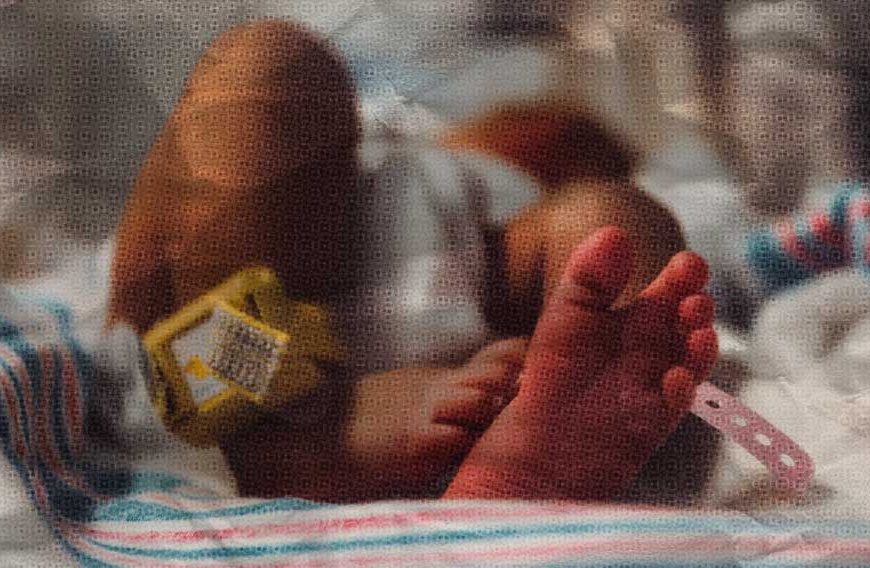In the light of recent floods and bushfires, Australians are divided as to the cause of natural disasters. For many millennials, anthropogenic climate change is the primary culprit. The venial sin of discharging CO2 emissions, they argue, is what leads mother nature to avenge mankind through environmental calamities.
For others, Stoicism makes more sense of things. They argue that natural disasters just happen, and there’s nothing you can do to prevent them. Australia, they argue, is a place where these tragedies regularly occur, and the sooner we accept this, the better off we will be.
Yet, the one question we loathe hearing is this: “Are natural disasters the judgment of God?”
Whether or not you find this question offensive, here are three reasons it is worthy of our consideration:
1. Natural Disasters: Maybe a Judgment of God
In our age of personal autonomy, we despise the notion that God would ever judge us for our sin. We live the way we like, and no one — not even God — is permitted to get in the way. Particularly despicable is the notion that God would ever judge us through an environmental catastrophe.
At no point was this clearer than in late 2019. Australian media outlets vented their moral outrage when Israel Folau suggested that the 2019 bushfires were the judgment of God on Australia for our sin.
Whether or not the bushfires were God’s judgment, God’s Word is clear that natural disasters are always the consequence of living in a broken world marred by sin (Romans 8:19-21). Furthermore, the Bible is clear that some of these natural disasters are directly linked to specific sins. For instance, consider the following judgments of God:
- The Global Flood (Genesis 5-7)
- Sulphur and Fire on Sodom and Gomorrah (Genesis 19:23-29)
- The Ten Plagues on the Egyptians (Exodus 7:14-11:10)
- The Earth Swallowing the Sons of Korah (Numbers 16:28-35)
In truth, our primary issue is that we don’t believe we deserve God’s judgment for our sin. If we did, we wouldn’t be surprised at the frequency of such afflictions. Yet, when we reflect upon the depth of our sin against God — in thought, word, and deed — a more remarkable fact is how infrequently these natural disasters occur.
2. Natural Disasters: Always a Foretaste
Natural disasters are always intended to point us to the reality of the final judgment. They are a picture, a portrait, and a preview of what is to come upon those who continue to live in rebellion against God.
As the Apostle Peter wrote:
“…if he did not spare the ancient world, but preserved Noah, a herald of righteousness, with seven others, when he brought a flood upon the world of the ungodly; if by turning the cities of Sodom and Gomorrah to ashes he condemned them to extinction, making them an example of what is going to happen to the ungodly” (2 Peter 2:5-6)
Both the floods and the fires of Genesis were a foretaste of God’s eternal judgment. In hindsight, God recorded them in Scripture to warn us of what will become of those who persistently reject God’s salvation.
Practically speaking, irrespective of whether they were God’s judgment or not, the 2019 bushfires are a tangible image of the fire which will engulf all those who continue living in rebellion against God.
While some may consider this judgmental, it is a profound display of God’s mercy. Rather than impulsively destroying us, God gives a foretaste of His final judgment to prompt us to turn to Him.
Why does He do this? Because only He can save us.
3. Natural Disasters: God’s Call to Repent
In the West, we are prone to succumb to the illusion that we are the masters of our fates and the captains of our souls. Natural disasters are a sobering wake-up call that nothing could be further from the truth.
As C.S. Lewis wrote in The Problem of Pain:
“God whispers to us in our pleasures, speaks in our conscience, but shouts in our pain: it is His megaphone to rouse a deaf world.”
C.S. Lewis, The Problem of Pain (New York: Harper Collins, 1996), 91
Each time a calamity strikes, we are reminded of the glorious truth that God is in control, and we are not. When God strips away our security and comfort, we recognise just how fragile our lives are.
Yet, God does not do this arbitrarily. He does it to alarm us of our need to repent of our sin and trust in Him. Jesus spoke directly about this in the Gospel of Luke:
“There were some present at that very time who told him about the Galileans whose blood Pilate had mingled with their sacrifices. And he answered them, ‘Do you think that these Galileans were worse sinners than all the other Galileans, because they suffered in this way? No, I tell you; but unless you repent, you will all likewise perish. Or those eighteen on whom the tower in Siloam fell and killed them: do you think that they were worse offenders than all the others who lived in Jerusalem? No, I tell you; but unless you repent, you will all likewise perish’” (Luke 13:1-5)
Jesus gets to the heart of our issue — our own heart.
Whether or not a disaster is linked with sin, we too will perish lest we repent. Therefore, our job is not to attempt to discern whether a specific disaster is His judgment or not. Rather, it is to see in natural disasters our own feeble estate.
When we recognise the depth of our sinfulness before a holy God, our interest in finding cause-and-effect relationships with natural disasters begins to diminish. Instead, we are humbled to recognise Jesus Christ as our only Saviour.
The Bottom Line
As humans, we aren’t omniscient. This means that we don’t know why specific natural disasters occur. Nevertheless, while it is presumptuous to suggest all natural disasters are divine retribution, the pendulum must not be swung in the other direction to suggest that no natural disasters are due to specific sins.
Natural disasters remind us that we are living in a fallen world, that we ourselves are mortal, and that there is a greater judgment to come. By God’s grace, He allows these tragic events to afflict our world so that we would recognise our desperate need for salvation.
Through these dark catastrophes, the beauty of Jesus Christ shines all the brighter. It is the grace of God that shines upon our hearts in these moments to see that there truly is no other name under heaven by which we can be saved (Acts 4:12).

















